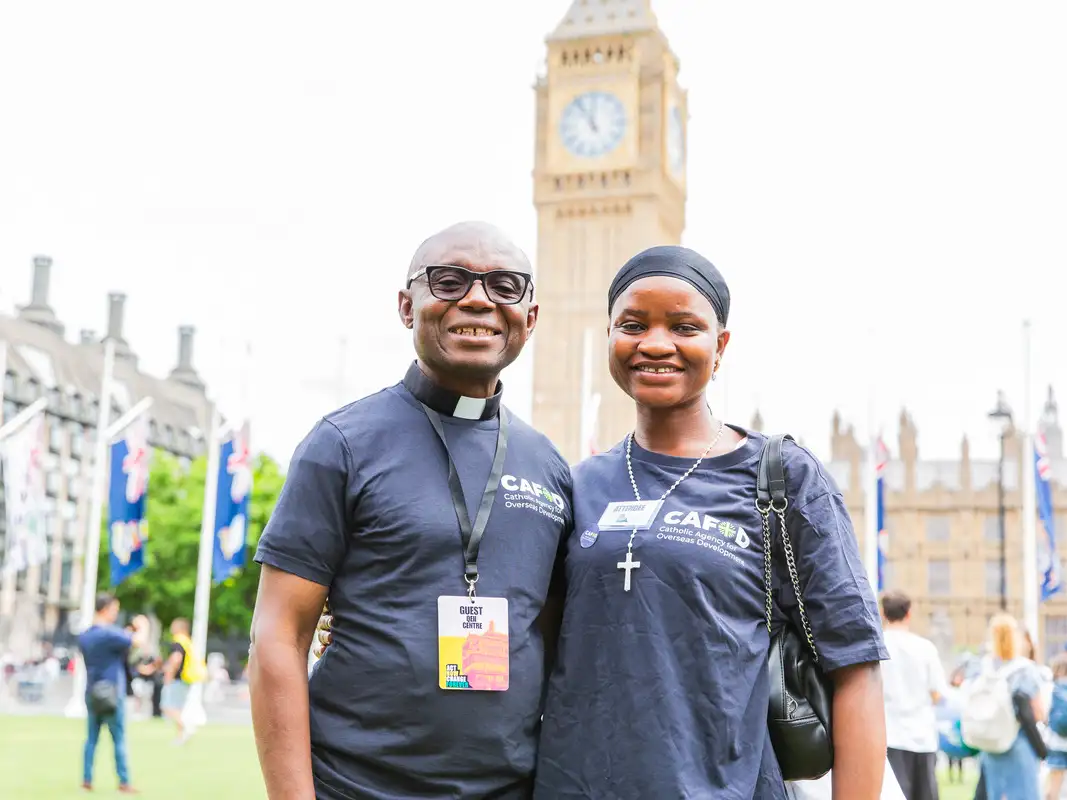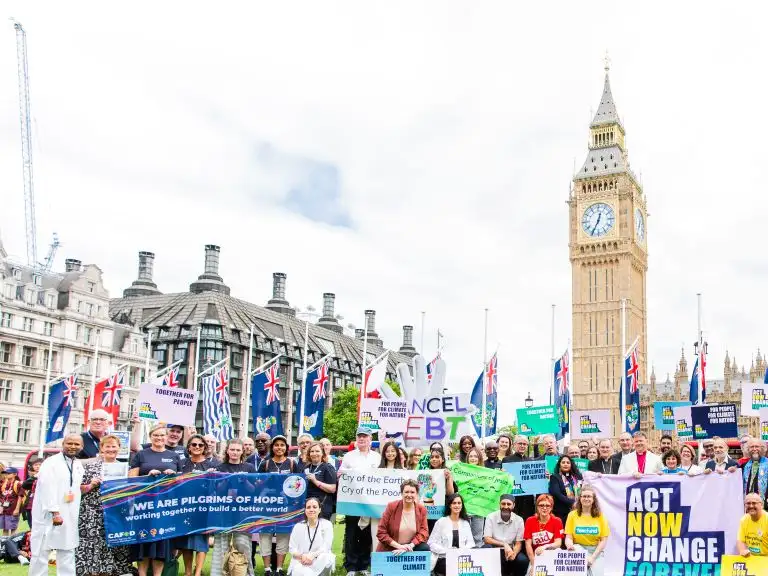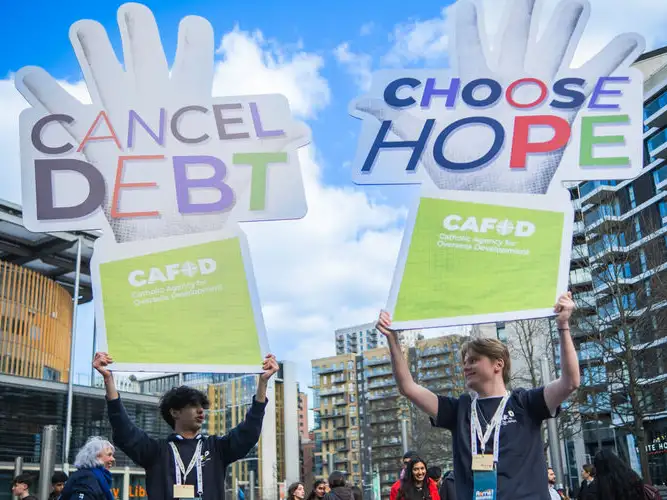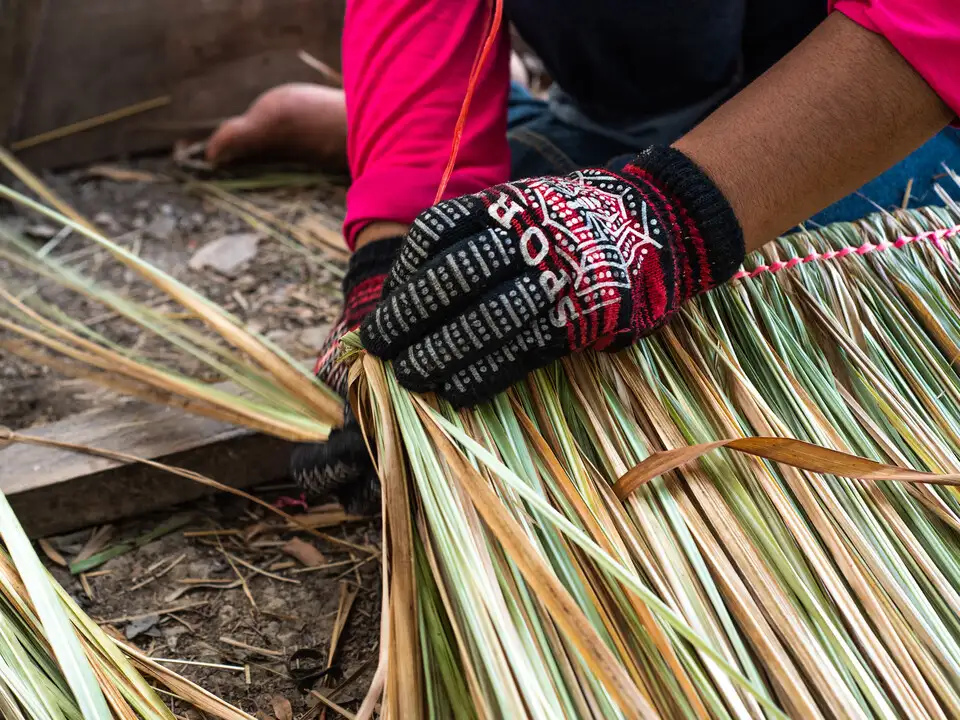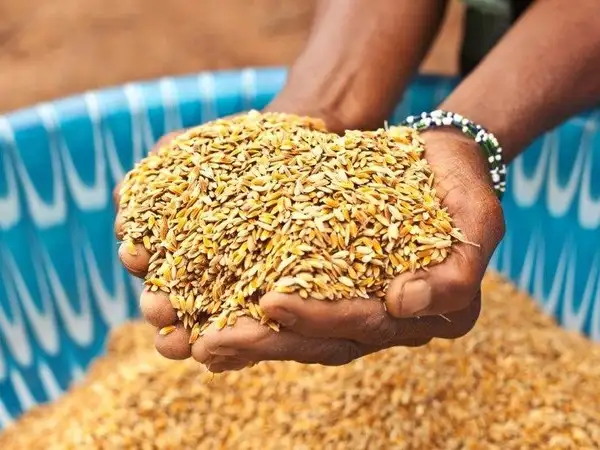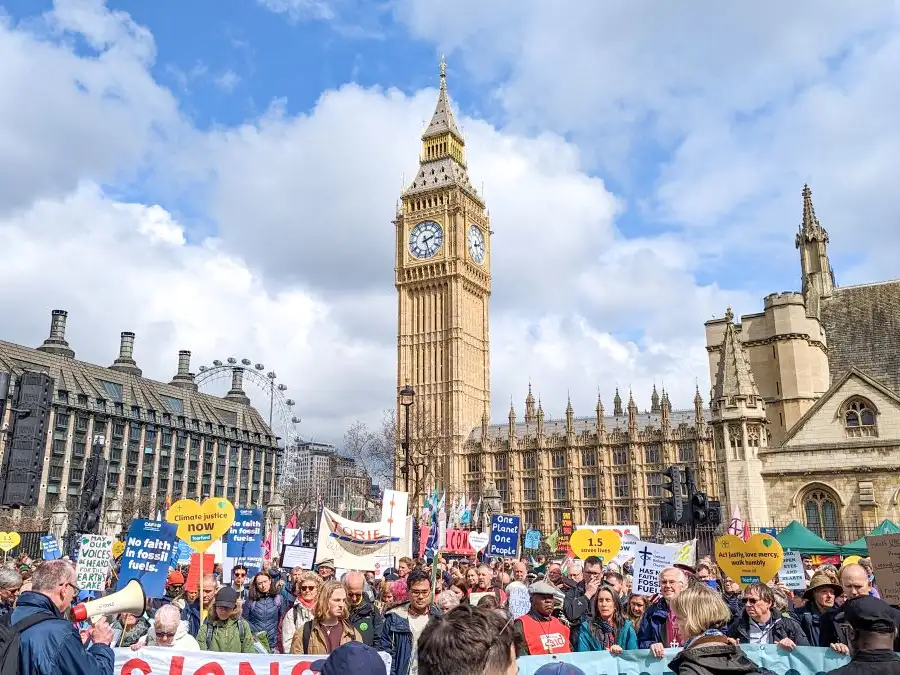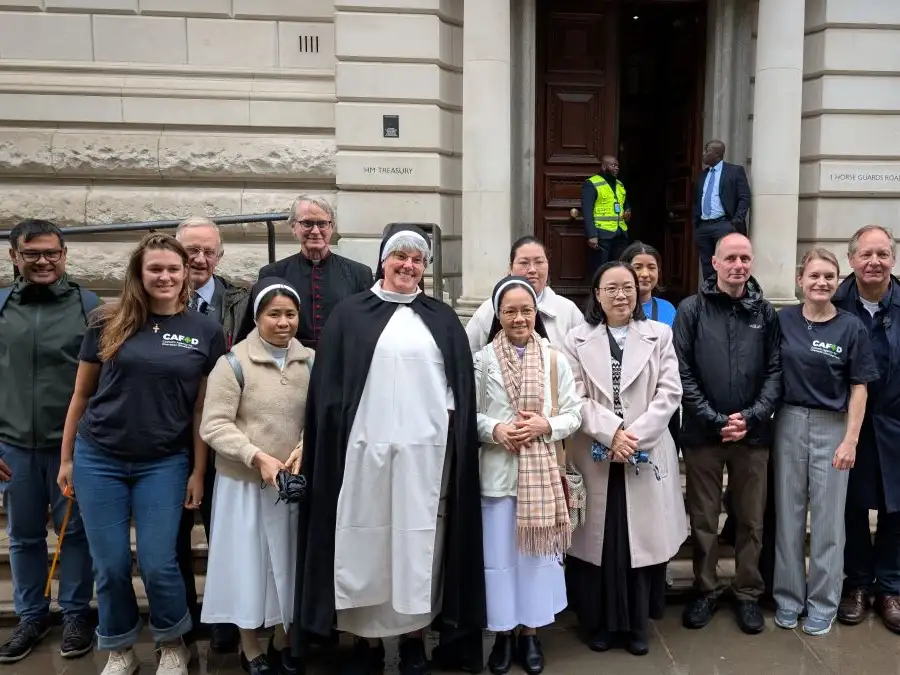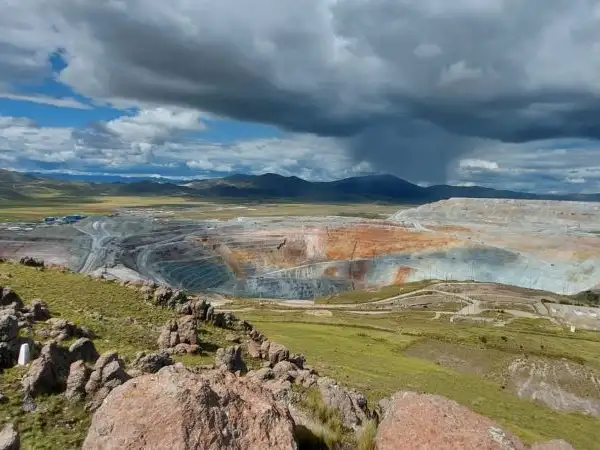

Tintaya mine in Espinar, Peru.
by Lucy Jardine - Communications Officer for Latin America and the Caribbean
One of the privileges of my job is the opportunity to spend time with partners and communities, to get to know them and the issues they are facing. I first met Esmeralda in November 2018, on a visit to Espinar, Peru, to see the Tintaya copper mine. Esmeralda was President of the Association of Women Defenders of the K’ana Territory and Culture (AMDETEC) at the time. She was softly spoken, and clearly unwell.
Esmeralda told me about how the copper mine’s presence had affected local communities, as well as her own health: “I have a problem with my health, and no one can tell me what I have. I keep forgetting things. I don’t feel like myself. I don’t feel right. […] My animals died recently. One day three died and then the next day another. My animals are what keep me alive. The money we make from our animals lets us buy food, healthcare and clothes. When the animals die, we can’t survive.”
Mining has taken place in Espinar for over 40 years, and the environmental, economic, social and health impacts have been huge. Despite many promises made by successive owners of the mine (currently Swiss mining giant Glencore), local communities have not benefited to the extent they should have. Communities have been divided and families displaced. The water is polluted and not fit for human consumption, and it has become almost impossible to sell products produced in the area as no-one wants them due to the contamination. People’s health has suffered.
Human rights and environmental abuses must stop
After tests conducted by the Peruvian state (that didn’t publish the results) and more recently by Amnesty International, it has become apparent that people are living with high levels of toxic metals in their blood. Including Esmeralda. She didn’t know that when I first met her, but she does now. In December 2019, drinking water of the urban population of Espinar was found to be contaminated. The local government was ordered to take action within 90 days, but this didn’t happen.
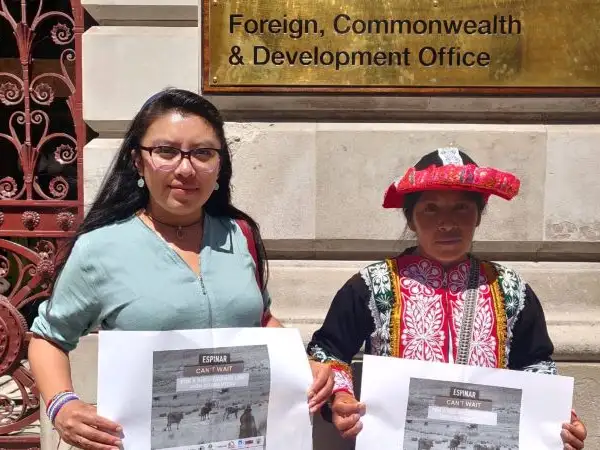

Karem and Esmeralda at the Foreign, Commonwealth & Development Office in London.
CAFOD partner Human Rights Without Borders has been providing support to local communities, helping people like Esmeralda know their rights so they are able to stand up for themselves. We’re also working with local experts to provide legal support to community members who, when peacefully protesting for their rights, have been falsely accused of various crimes.
Karem, who works for Human Rights Without Borders, told us: “The mining company promised that relations with the community would be good, but their failure to live up to their promises has led to social conflicts, and the Peruvian state denounced leaders when they tried to raise awareness about the rights of their people.”
When I met Esmeralda again in Cusco in April this year, she seemed more confident. But she told me how much people’s health was still suffering - all kinds of cancers and deaths beyond what may be perceived as normal. She said her own sight was now failing.
“All we want is justice”, she said. "To be treated as human beings. To be able to live as our ancestors did.”
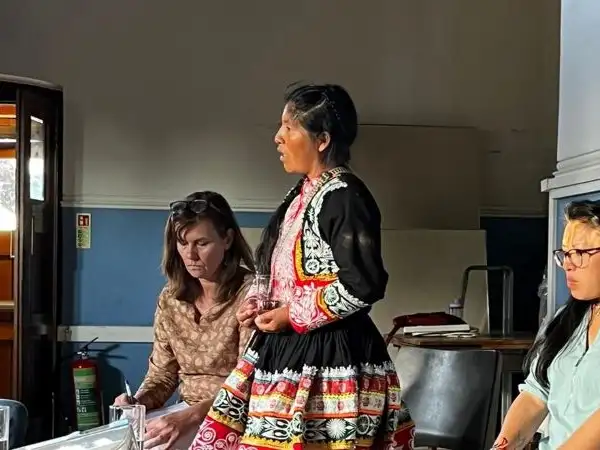

Esmeralda sharing her story at St Erconwald parish in Walton-on-Thames.
Our faith calls us to act
In the past few weeks, Karem and Esmeralda have been in Brussels and England as part of an international campaign for laws to hold companies to account for the impacts of their activities. They spent time with CAFOD supporters, MPs, pension fund investors and others interested in the situation in Espinar.
Karem reminded us how important it is to be aware of the provenance of what we buy, the cost it has to the environment and people’s lives, and to raise awareness among our children and grandchildren.
Esmeralda shared just how much it meant to her to have met with supporters: “Today we have hope that you are going to support us. You have enabled me to come here and have helped to raise awareness about our problems. That means a lot to me, and I feel I am doing good for the people who live over there, who are suffering there. I am so grateful on behalf of my association and of my Espinar. This gives me hope. I feel listened to and heard.”
I am humbled by Esmeralda’s courage in travelling so far from her home, in standing up for her rights, and by her strength to keep going. Karem and Esmeralda have clearly spelled out the need for action and our own responsibility. As the title of their campaign says: Espinar no puede esperar – Espinar can’t wait.


